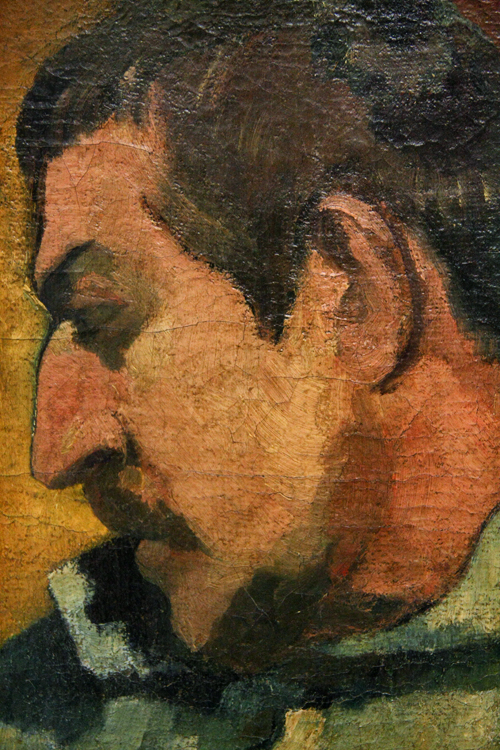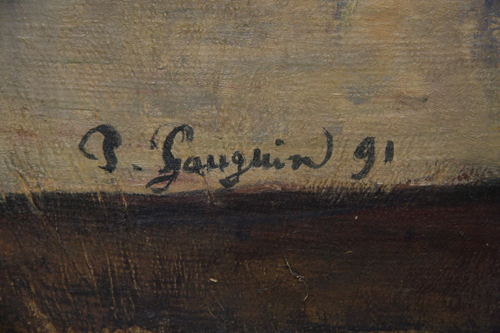Faubourg Saint-Honoré Galerie des Beaux-Arts
The Age Of Reason, p.59
The taxi stopped, and Ivich got into it. 'While I'm there,' thought Mathieu, 'I'll ask Daniel for an extra thousand francs — that will see me to the end of the month.'
'Galerie des Beaux-Arts, Faubourg Saint-Honoré.'
The Age Of Reason, p.71
What first met their eyes was the escutcheon above the door, bearing the letters 'R.F.' and the tricolour flag: which set the atmosphere at once. Then the visitor entered the vast, gaunt saloons, flooded by an academic light from frosted windows in the roof; a gilded light that soaked into the eyes, melted, and turned grey. White walls, beige velvet curtains: and Mathieu thought -'The French Spirit'. it was indeed all-pervading- on Ivich's hair, on Mathieu's hands, in the muted sunshine, and the official silence of these halls. Mathieu felt overwhelmed by a cloud of civic responsibilities. Visitors must talk in an undertone, not touch the exhibits, exercise their critical instinct with moderation, but also with decision, and not on any account forget the most French of all the virtues -Consistency. There were patches, of course, on the walls in the shape of pictures, but Mathieu no longer felt any wish to look at them.

The Age Of Reason, p.71
However, he took Ivich around, and silently pointed out to her a Breton landscape with a Calvary, a Crucifixion, a flower-piece, two Tahitian women kneeling on beach, a dance of Maori horseman. Ivich said nothing and Mathieu wondered what was in her mind. He made spasmodic efforts to look at the pictures, but they conveyed nothing to him. 'Pictures,' he thought with annoyance, 'have no positive force, they are no more than suggestions, indeed their existence depends on me. I am free as I confront them.' Too free; he felt burdened by an additional responsibility, and somehow at fault. 'That,' he said,' is a Gauguin', and silently pointed out to her a Breton landscape with a Calvary, a Crucifixion, a flower-piece, two Tahitian women kneeling on beach, a dance of Maori horseman. Ivich said nothing and Mathieu wondered what was in her mind. He made spasmodic efforts to look at the pictures, but they conveyed nothing to him. 'Pictures,' he thought with annoyance, 'have no positive force, they are no more than suggestions, indeed their existence depends on me. I am free as I confront them.' Too free; he felt burdened by an additional responsibility, and somehow at fault. 'That,' he said,' is a Gauguin.'
It was a small square canvas labelled: 'Portrait of the Artist, by himself.'
